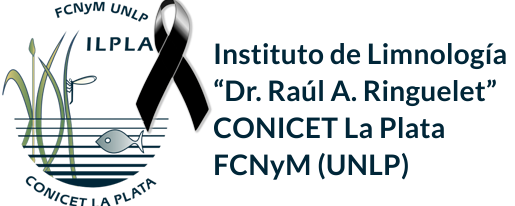This laboratory analyses the structure and function of the micro communities that inhabit the water column (plankton) and those that cover different types of substrates (biofilms), which are found in continental water bodies. Work is carried out on the diagnosis of water quality from the monitoring and use of biological indicators, and the self-depuration capacity of river biofilm and micro plastic contamination is studied. This working group focuses its interest on Pampean rivers and streams and the estuary of the Río de la Plata, using to test the hypotheses that the studies pose to field and laboratory experimentation. In this sense, structural and functional aspects of the communities that populate the bodies of water and those that line different types of substrates, such as bacteria, microalgae, micro invertebrates and fungi, are analyzed. The objectives set by the research group tend to obtain biotic and ecological integrity measures aimed at obtaining monitoring tools appropriate to the characteristics of the ecosystems under study. Ecological indicators are designed to contribute to the diagnosis of water quality as well as on-site and laboratory tests aimed at detecting cause-and-effect relationships. The studies also cover issues related to the biodiversity of the communities studied, which allows to expand the knowledge of the biota of the ecosystems under study and the state of conservation thereof. Moreover, it also addresses contamination with micro plastics in water, sediment and biota. The members of the laboratory interact with other national and international research groups and transfer the results obtained to environmental management bodies as well as through the university teaching of undergraduate and graduate degree.
Keywords
Plankton and biofilms, biomonitors, diatoms, microplastics, self-depuration, Fungi
Working group head
Dr. Nora Gómez (Senior researcher)
Team
Dr. Joaquín Cochero (Independient researcher)
Dr. M. Belén Sathicq (Assistant researcher)
Dr. Delia E. Bauer (Support staff)
Lic. Julián Simonato (Support staff)
Dr. M. Mercedes Nicolosi Gelis (Assistant researcher)
Dr. Santiago A. Tarda (Scholar)
Lic. Micaela Mujica (Scholar)
Lic. M. Agostina Pecile (Scholar)
Lic. Martina Herrera (Scholar)
Contact
+54 (221) 422-2775 – Intern: 29, 30



